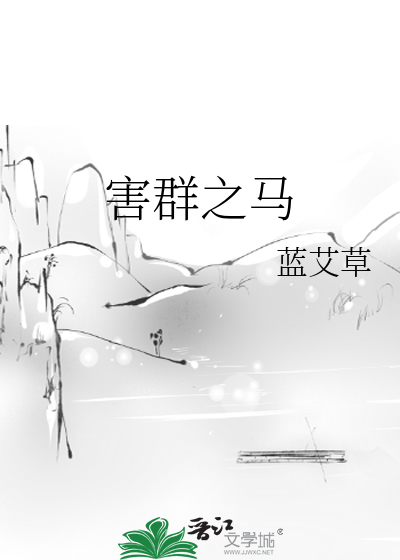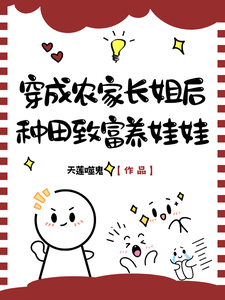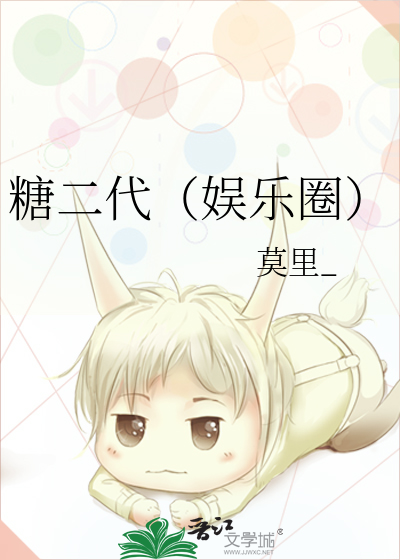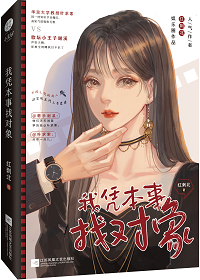"Already completed the research, only lacking large-scale practical testing?"
This was no trivial matter. Qu Mingli repeatedly verified the details before reporting to the provincial authorities.
The provincial officials didn’t fully understand either, so they summoned the chief engineer of the provincial tractor factory for consultation. The moment the chief engineer heard the proposal, his brows furrowed.
"What’s wrong? Is it unreliable?" the provincial official asked hastily upon seeing his expression.
The chief engineer wanted to say it sounded far-fetched. If this technology were so easy to develop, it would have been done long ago—there wouldn’t have been a need for the project to be shut down by higher authorities.
Forget their small machinery factory—where would they even get the funding? Back then, even the prestigious Qinghua Institute had the resources and talent, yet they hadn’t cracked it either.
The chief engineer suspected that the team might have simply tweaked the existing hydrostatic system and claimed it as their own.
But since the matter had been brought to him, he asked, "Do you have a detailed thesis or report?"
"Yes." Qu Mingli had included the report when submitting his findings, though the provincial officials couldn’t make sense of it.
He handed over a thick stack of handwritten papers. The chief engineer took it and was immediately struck by the elegant handwriting.
In this era, handwriting was often seen as a reflection of character. The neat script made the chief engineer slightly more patient as he flipped through the pages.
But only slightly. Responsible for overseeing the entire factory’s technical operations, he was extremely busy and didn’t have time to waste. He went straight to checking for design diagrams.
If the proposal was unreliable or lacked significant innovation, a glance at the diagrams would be enough to tell—the rest wouldn’t need reading.
He quickly found them and took a look. Then he paused, looked again, and this time, his gaze lingered.
The design was strikingly different from the one previously developed by Qinghua Institute. Apart from the core components, there were almost no similarities.
Several control valves had been simplified, and some components were entirely unfamiliar—not due to his ignorance, but because they appeared to be newly designed.
This was unexpected. The machinery factory in Changshan County wasn’t tiny, but it certainly didn’t have the research capabilities for something like this.
Ignoring the broader context for now, the chief engineer skimmed through until he found the description of one of the new components. Upon reading, he confirmed it was indeed an original design.
Moreover, from the design rationale to the underlying principles, it all seemed logical—even ingenious.
This piqued his interest further. After reviewing the unfamiliar components, he finally turned to the beginning of the thesis.
Now fully absorbed, he began reading intently, leaving the provincial official waiting. Minutes turned into hours with no sign of him finishing.
The chief engineer kept pausing, lost in thought—sometimes longer than the time he spent reading.
But the fact that he hadn’t dismissed it outright suggested there was substance to the report. The provincial official, unable to follow the technicalities, eventually returned to his own work.
A long while later, the chief engineer finally closed the thesis. "This was really submitted by the Changshan County Machinery Factory?"
The level of expertise was far beyond what a small county factory could produce—even their own senior engineers might struggle to match it.
And their factory was already among the best in the country, with research capabilities rivaling some universities and institutes.
Even without seeing a physical prototype, the depth of knowledge and clarity of thought in the thesis was beyond the reach of an average engineer.
Yet, when the provincial official paused his work to confirm, the answer was clear: yes, it had indeed come from Changshan County.
The chief engineer frowned, trying to recall if any experts had been reassigned to Changshan during the special circumstances of the past.
And then there was the question of funding. How could a place that needed provincial approval for minor system upgrades afford such research?
Baffled but intrigued, he told the provincial official, "Theoretically, it looks feasible. But whether it actually works depends on the physical implementation."
In the past, this wouldn’t have been his responsibility—the provincial Science and Technology Commission would have handled it.
But the commission had been dissolved in 1970 and hadn’t been reinstated. After some thought, he said, "I’ll assemble a team to go inspect it."
Since the matter had landed on his desk and the report had impressed him, he was genuinely curious about its viability.
Besides, hydrostatic systems were known for low energy consumption and high flexibility—ideal for tractors. Their factory had experimented with a batch before.
But production had been limited, mostly for trial use. Agricultural tractors didn’t require low-temperature operation, so they hadn’t encountered the same failures as the Jicai-50.
Back at the factory, he briefed the team and specifically called on one engineer who had visited Changshan before. "Xie, you handle hydraulic systems—you’re coming with me."
They formed an inspection team of three, including a veteran tractor driver from their factory.
Meanwhile, in Changshan County, Qu Mingli received the news and re-invited Master Tang, the technician from another city who had assisted with the system modifications, to participate in the testing.
The Changshan Machinery Factory had limited R&D capabilities, primarily producing fixed components. They had never hosted so many senior and associate engineers at once.
Upon hearing about the inspection team’s arrival, the entire factory mobilized. The leadership postponed all other matters to focus on welcoming them.
In contrast, Qi Fang, the man behind the innovation, remained the calmest. The night before the inspection, he simply held Yan Xue quietly, lost in thought.
Yan Xue understood what was on his mind and stayed silent, leaning against him. The next day, Qi Fang dressed neatly and headed to work.
The moment the tractor drivers took control, they noticed the difference—especially Master Tang, who was accustomed to the old Jicai-50.
This modified version started up noticeably faster and ran quieter than its predecessor.
To ensure accurate comparison, the local veteran tractor driver was also present. "The acceleration is much quicker," he remarked in surprise.
Even among hydrostatic systems, the earlier batch hadn’t performed this well. Just this improvement alone made Qi Fang’s version superior.
Moreover, the county had already tested this unit extensively, and it showed no signs of failing in low temperatures—at least its stability was confirmed.
The engineers, having studied the report, had deeper insights. "They reduced several control valves, minimizing energy loss during transmission."
"Theoretically, closed-loop systems should respond faster than open-loop ones, but the previous design didn’t achieve that."
"The machine also seems more agile," one engineer noted, turning to the local driver. "The old Jicai-50 wasn’t this nimble, was it?"
"Not at all," the driver answered honestly. Master Tang, currently test-driving it, felt the difference even more acutely—so much so that it took some getting used to.
The machine, though an old model that had been in operation for seven or eight years with many worn components, handled with even greater sensitivity than a brand-new one.
At times, based on experience, he thought he needed to apply more force, but the machine glided through effortlessly, making it feel less controllable than before.
However, this was mainly due to unfamiliarity. Once accustomed, its efficiency would undoubtedly surpass the old model.
Even the traction had improved slightly—when pulling another machine, the difference was noticeably lighter.
Master Tang stepped down from the tractor with a complicated expression, especially after casting a few extra glances at the young man standing quietly to the side.
Last time, when Qi Fang modified the hydraulic system using static hydraulic components, he had been astonished. But this time, without modifications, the performance had improved so dramatically.
The provincial tractor factory’s testing specialist, relying on precise measurements, confirmed, "The performance has indeed improved significantly."
This was exhilarating. Domestic engineering machinery technology had stagnated for years, with the biggest breakthroughs limited to increasing horsepower.
But horsepower alone couldn’t solve all problems—it also increased energy consumption. That’s why Songtu, despite developing the 80-horsepower Jicai-80 in 1968, never put it into production.
Qi Fang’s static hydraulic system was different. It drastically improved performance without increasing horsepower, marking a monumental technological breakthrough.
After witnessing the test, the group immediately convened a discussion at the machinery factory, posing questions to Qi Fang about the aspects they didn’t fully grasp.
Qi Fang answered fluently, not even glancing at reference materials—every complex theory and precise figure was already stored in his mind.
The provincial engineers nodded along, some even taking notes, while the factory workers struggled to keep up, much of the content beyond their understanding.
After the meeting, Master Hong couldn’t help but sigh, "We really need to study more. His mind works at a different speed."
Only those ignorant of the field would claim education was useless. For technicians, continuous learning was non-negotiable.
The provincial engineers, especially Xie, the hydraulic systems specialist, were equally unsettled.
This project had been shelved for years. No one expected it to succeed, let alone be developed by a small-town engineer rather than a research institute.
And the so-called "useless" innovation had proven incredibly effective—far from useless, it was invaluable.
After a long silence, the chief engineer of the provincial factory proposed, "We need large-scale practical testing. Your county lacks the resources—let’s transfer him to our facility."
The local factory only produced components, while the provincial factory manufactured thousands of tractors annually.
If further testing succeeded, it would benefit the provincial factory immensely. He could request dedicated personnel and funding.
Given that Qi Fang had developed the system alone, with no involvement from the local factory, they had no grounds to refuse. Soon, the transfer notice arrived.
Qi Fang returned home and told Yan Xue, "This trip might keep me away for a long time." The provincial capital was far from Changshan—a round trip took over a day.
Yan Xue simply smiled. "Then you’re one step closer to clearing Teacher’s name." Qi Fang pulled her into an embrace, silent for a long while.
Though Qi Fang didn’t know it, Su Changqing would have been rehabilitated in a few years regardless.
But being a nameless entry on a long list versus having his case reopened with solemn respect—he undoubtedly preferred the latter.
Yan Xue rested her head against his chest. "Go. I’ll wait here for you—for you and Teacher’s good news."
The next day, Qi Fang boarded a train to the provincial capital and immediately plunged into work upon arrival.
First, he adjusted components, designing a static hydraulic system tailored to the provincial factory’s tractors, followed by extensive testing.
In June, the first optimization reduced fuel consumption by 15%.
By July, the second optimization pushed it to 18%, with minor adjustments to certain parts.
It wasn’t until August that Qi Fang finally carved out a few days to return home. As soon as he entered, he saw Yan Xue and Yan Jigang carrying bags, about to leave.
Surprised, he watched as Yan Jigang flushed slightly. "Sis found me a job—teaching English at Chengshui Forestry Bureau’s middle school."
Qi Fang remembered Yan Jigang had just graduated high school and had planned to discuss his future. Yan Xue had acted faster than expected.
"Congratulations," he said to his brother-in-law, then set his things down inside. "I’ll walk you out."
The three stepped outside, and Qi Fang handed Yan Jigang a fountain pen. "Bought this for you in the city."
Yan Jigang recognized it as a far cry from his usual one-yuan pens. "Isn’t this expensive?"
It was a premium Hero model, costing over ten yuan—a significant sum for the era’s wages.
But Qi Fang had bought it specifically for him. "Keep it. You’re working now—you deserve something nice."
Yan Jigang thanked him and took it. At the bus stop, he urged them back. "I’ll be fine. No need to see me off."
The eighteen-year-old carried himself like an adult, though he seemed to want to say something to Yan Xue—glancing at Qi Fang, he swallowed the words.
Assuming it was a private sibling matter, Qi Fang didn’t press. He and Yan Xue watched the bus disappear before heading home.
Second Old Lady was tidying the main room when they entered. "We’re down to one piece of fermented tofu. Since you’re home, I’ll go buy more."
She moved to leave, but Qi Fang took the jar. "I’ll go. Rest, Grandma."
With her bound feet, such errands usually fell to him or Yan Xue. The family rarely ate fermented tofu anyway.
Something felt off, but Qi Fang couldn’t pinpoint it. After returning with the groceries, he ran into Qi Yanyu, who had been playing outside and now clamored around him.
It wasn’t until dinner, watching Yan Xue—who usually avoided fermented tofu—devour one and a half pieces with bread, that he finally got a moment alone with her.
He moved to embrace her, but Yan Xue held him at arm’s length. "Be gentle."
Qi Fang frowned. "Are you feeling unwell?"
Yan Xue glanced at him, "A little, actually." Just as he was about to ask, she continued, "I'm pregnant again."
Qi Fang froze, his expression taking a moment to process the news before his handsome face stiffened completely.
Yan Xue raised an eyebrow at his reaction. "What? Aren't you happy?"
Qi Fang remained silent, prompting Yan Xue to raise her voice slightly. "You really aren’t happy?"
"It's not that," Qi Fang quickly reassured her, though he struggled to articulate his feelings. After a pause, he asked, "How far along are you?"
"Just over three months," Yan Xue said. "I wanted to tell you in person, so I didn’t mention it in my letters."
She hadn’t expected to be pregnant again, not when Qi Yanyu was already eight years old. She and Qi Fang had always been careful—or so they thought.
When her period was over two weeks late, she went for a checkup and discovered that one of their "little raincoats" had failed spectacularly.
The timing couldn’t be worse. The college entrance exams were set to resume at the end of the year, and she’d likely be heavily pregnant by then. She wasn’t even sure if pregnant women would be allowed to take the test.
Her children certainly had a knack for dramatic timing—one had followed her across the country to reunite with his father, and now this one would accompany her into the exam hall.
But since the baby was already on the way, there was no turning back. Yan Xue chose to see it as another gift from fate.
Qi Fang’s expression, however, suggested he didn’t share her optimism. Yan Xue fixed him with a stare. "You don’t actually want me to keep it, do you?"
This time, Qi Fang hesitated before carefully wrapping an arm around her shoulders. "I never wanted you to go through childbirth again."
The hardships she’d endured the first time were more than enough. The helplessness and fear he’d felt while waiting outside the delivery room weren’t something he wanted to relive.
But the baby was coming, whether they liked it or not. Qi Fang rested a hand on Yan Xue’s belly. "I’ll find a way to wrap things up at the provincial tractor factory soon."
Then he frowned. "The quality of those condoms is terrible. I should write to the factory and demand improvements." The comment made Yan Xue laugh.
With Wu Xingde’s downfall imminent, would the man originally destined to be a widower in the novel really shift his focus to improving contraceptive production?
Whether Qi Fang would eventually champion better condoms remained to be seen, but before that, he turned his attention to local healthcare.
After some research, he returned with news: the city hospital had a doctor skilled in C-sections. The physician had been sent to the countryside during the Cultural Revolution but had returned two years prior.
This explained why Yan Xue hadn’t given birth in a hospital last time—not only was it far, but the experienced doctors had all been reassigned, leaving only inexperienced trainees who were less reliable than midwives.
It wasn’t until 1975, when policies relaxed slightly, that some doctors were allowed back to the cities after passing evaluations.
Knowing there was a skilled surgeon in Jiangcheng eased both Yan Xue and Qi Fang’s worries—at least some risks could now be managed.
(Yan Xue had actually looked into this herself, but she played along, pretending she hadn’t.)
Qi Fang’s leave was too short. After absorbing the bombshell news and scouting hospitals, he had to return to the provincial tractor factory.
But most of the improvements were already implemented, and data collection was nearly complete. It was time to submit their findings.
Soon, the factory management approached him. "The central government is reinstating the Science and Technology Commission and plans to hold a major conference next spring. Your project is groundbreaking—we want to nominate it. Draft a new report for submission."
The higher-ups were clearly prioritizing scientific development, moving quickly to organize the conference as soon as the political climate stabilized.
Qi Fang said nothing, simply revising the data and submitting a new report. But in the "researchers" section, the first name listed wasn’t his—it was Su Changqing’s.
The factory staff nearly missed it. After flipping past the first page, they backtracked. "Did you make a mistake with the lead researcher’s name?"
"No mistake," Qi Fang replied calmly, his gaze intense. He’d waited far too long to say this: "This project was originally my mentor Su Changqing’s work. I only refined and completed it."







